Photo: Braylen Dion
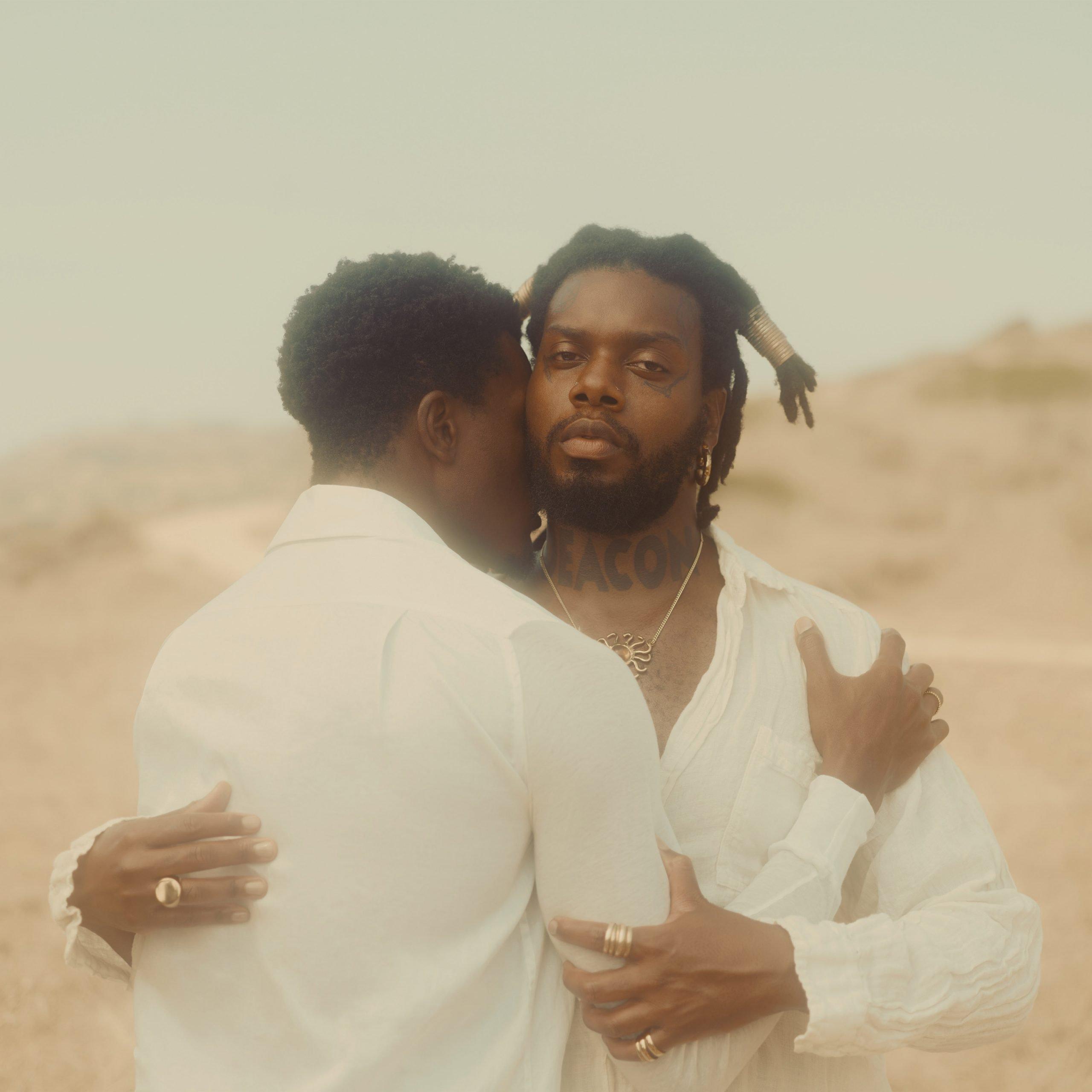
serpentwithfeet
news
Serpentwithfeet Celebrates Black Gay Love With Delicate Devotion On ‘DEACON’
“I hope that people are encouraged to be soft, and to be gentle as they can be,” serpentwithfeet shared with GRAMMY.com about his new album, ‘DEACON’
Serpentwithfeet is happy, and you can hear it even when his voice goes beyond language. Midway through “Same Size Shoe” from his new album DEACON, the Baltimore-born singer also known as Josiah Wise introduces a “trumpet” fanfare that’s his own voice layered several times over, heralding a love steeped in understanding and empathy. Released March 26, it celebrates Black gay love with a giddiness to rival pop hits from ‘60s Motown or ‘90s R&B, a pivot from the darker tones of previous serpentwithfeet releases.
The singer enlisted new collaborators like British singers Sampha and NAO (each of whom he had previously opened for in 2016) to attain the album’s bright sound, recorded between Los Angeles and London over the past three years.
On the phone, Wise raves about his current home: “Part of the reason why I love L.A. so much is that people in the industry are so kind. I think it's such a great city because I get to work and I can do sessions and all of this, but then also the people that I work with are so much fun to be around.” Even with 808s from “Mo Bamba” and “Panini” production duo Take A Daytrip, the music hangs in the air like a generous dollop of whipped cream atop a dessert.
DEACON’s joy is a perfect fit for the beginning of spring, as people tentatively return to gathering together safely. “Malik” and “Amir” are composite character sketches of past lovers, while the closing track “Fellowship” celebrates friendship.
"I hope that people are encouraged to be soft, and to be gentle as they can be," Wise says in conclusion. "I think that that's all I can really wish for, is that people listen to this work, and maybe it will give them some encouragement to be gentle."
You just released the Apparition EP in April 2020. What was the development of DEACON like?
The thing is, I'm always working on music, and I like to organize; "Okay, like, this feels like it's part of this particular idea." The Apparition songs definitely didn't fit what I was going for on DEACON. I said, "This should be its own project." It's funny, because people have asked if this is a concept album, and I've never considered any of my projects concept albums, because that just seems really ambitious. But I do think I'm pretty good at knowing what the mood is, and I just knew the mood and the sonic palette for DEACON, so I try to stick within those confines.
The idea was to make something that felt really airy. I really wanted to feel and hear breath, and when I think breath, I think about space, the space to breathe, and about ventilation. That was my interest. Does this album have space? Does it feel loving? Does it feel gentle? Those are the feelings and the ideas I was in pursuit of for DEACON.
Possibly my favorite part of the project is the “trumpet” line on "Same Size Shoe." Can you tell me about writing that fanfare but recording it as a vocal?
I had that idea very early on. And I was uncertain about keeping it because I didn't know if it was too campy, but actually I love the campiness of it now. I just wanted to do a vocal fanfare moment. It's just so apropos. I think that song is so much about celebrating, celebrating Black love, Black gay love, and I just wanted something that felt jubilant and jocular, and doing a vocal fanfare just seemed really appropriate.
Where did the concept for “Same Size Shoe” come from?
I was just thinking about being with someone that I can trust, being someone who I don't have to explain anything to. Being with someone who has a similar cultural reservoir or cultural experience as me—I was writing about dating and being in love with Black men, and just the ease and the trust that is there. When you ask someone to walk in your shoes, well, I hope they wear the same size shoe. Because it's pretty painful if they don't! And that's one of the last lines of the song, like, "You can walk a mile in my shoes, that's why I trust you."
As you're recording and working on music, do you have a set process to keep track of your ideas?
I love being in the studio. But I think there's always an intention for sure, every time I go to the studio. The same way, with every project I've done, I knew what I wanted to do. I keep a little document of all the ideas of "Okay, so for this next thing, this is the territory I want to explore." Or, "I want things that are all above 130 BPM." I have to be pragmatic in that way. It doesn't mean that everything I put out is going to fit that criteria. But it's really helpful for me to start with a set criteria. Maybe that's the school kid in me coming out, like I need direction, and because I don't have a teacher, I'm the instructor. I have to be my own taskmaster.
Is it an emotional process when you're recording, to lay down these vocals, especially if you're recording by yourself?
Well, I've never had a session and started weeping or anything. But there are moments when I surprise myself and I give myself a high five a lot. I forget which writer said this, but they said you aren't writing until you've scared yourself. And I sort of take that same approach to music making, like I'm not making my best music until I've scared myself, or cry to myself, or done something where I feel a little like, "ooh."
"Hyacinth," I think, surprised me the most. It was interesting to see what happened when I got in front of the microphone, where I would have things written out, and then I would start singing, like, “Yeah, this word doesn't work.” I ended up surprising myself. That particular song, I didn't weep or anything, but was very emotional, in a sense, because I had told myself years ago—before I dropped the first EP blisters in 2016—I knew that the next project I wanted to do, I said, I want it to be really loving, and I want to write a song about nature. But I just didn't have a gentle touch. And I think you can have an agenda but sometimes you have to live to execute it.
When I wrote "Hyacinth," I was like, "Whoa, this is what I said I wanted to do five years ago." I was really touched that I was able to write something like that. So, in that way, it can be an emotional or wonderful reflecting process.
Were there any other parts of this recording or the writing that scared or surprised you?
"Sailors' Superstition," with Take a Daytrip. They're genius. It was stepping out of my comfort zone, but in the most wondrous and rewarding way. There was nothing stuffy or uncomfortable about those sessions. I had a lot of fun. They're both also very quick.
I knew I wanted to do something that was more danceable, and we talked about some ideas. When they heard what I wanted, they said, “Okay, great. It needs to be this BPM, we need to have the kicks on the twos,” and they just had their producer lingo. I was like, "How are y'all working like this?" Within 15 minutes, we had an instrumental. Even when I was recording my vocals, I did different takes, and they were like, "Oh, do this one, 'cause you were more in a pocket," or "Use this one, because you'd like your inflection here."
Sampha, while working on "Fellowship," stopped me from singing. I was recording the chorus and he was like, "Stop!" and I was like, "Whoa, I've never had somebody tell me to stop." And he was like, "I'm gonna sing with you, but I want to sing at the same time as you." And then he was like, "Lil Silva, you come and sing too." But that was Sampha's idea, to have us all sing together. Because I was just doing it by myself, and trying to make a really pretty chorus, with my little vocals. And he was like, "Nope, that's not it." But I was open to it, because it's Sampha.
The harmonies on "Fellowship" reinforce the theme of the song. Can you tell me about that song as a platonic love song?
I think friendship is such a wonderful, magical gift. And I definitely do feel like I have been gifted with friendship, and obviously, I've worked for it and all of that. "Fellowship," we wrote in 2019. And I was just thinking about how wonderful it is that I have people in my life that I can be my full self with, that I don't have to be around my friends and wonder, "Oh, can I not crack that joke," or "Can I not talk about my dreams, because they might sh*t on my dreams?" Or “Can I not wear this crazy outfit?”
My friends have seen me in so many different times in my life, and a lot of my friends I've had for years. I mean, I'm still friends with people from high school and college, and they're so, not just accepting, but they celebrate me and I celebrate them. And we also have lots of fun together now in the same way that we laughed and cut up when I was 16.
To me, this album sounds very happy and positive and upbeat. Are there any undercurrents of negative emotions, or bittersweetness to these songs for you?
I don't think so. So much of my previous work was about bittersweetness. The bittersweetness of grief, because grief means that you have loved, grief means that you have cared and you've been cared for. What I was talking about on [my 2018 album] soil, my grief was a response to having such a wonderful love experience.
But this time around, I didn't want that bittersweetness. I wanted to talk about maintaining and celebrating the love that I have in my life. And you know, I was very intentional about editing lyrics for a long, long time to make sure that there was no angst or bitterness. That took a lot of time, actually, to make sure that it actually felt joyous, and not fake joyous or half-joy.
Are there other works that fill that same space of celebrating Black gay love for you?
I'm inspired by so many different things. I think about TV shows, like I look at “Noah's Ark,” which I show a clip of actually in "Same Size Shoe." “Noah's Ark” is a TV show about a group of Black gay men. And there's the film Tongues Untied by Marlon Riggs, which is about Black gay men. I have so many different references, where I'm like, "Okay, how do I take that warmth from Queen Sugar and put it into a song?”
In addition to that, I was just thinking about loving songs that just feel like a balm. Like Janet Jackson's Damita Jo, specifically, the downtempo songs, like, "Spending Time With You," or Brandy's song "When You Touch Me" from Full Moon. I think I've had so many examples of how I can make a sweet song, like Musiq Soulchild's "Just Friends," which gave me a lot of information, when he says, "I'm not trying to pressure you, I just want to be your homeboy." Like, can we just be friends? So I was thinking about all those different artists that have offered such generous tunes.
I love the word generous that you used, and I want to turn it around to you. Does it feel like you are offering a lot of yourself to the world, like you yourself are being generous in this album that follows in those songs' footsteps?
Absolutely. My goal is always to be emotionally available. And some days are better than others, obviously, but that's always my goal. With writing these songs, I was very intentional about wanting to be emotionally available, and also wanting to sing about men who are emotionally available. And I think emotional availability and generosity go hand in hand.
What is your day-to-day like in recent weeks now that the project is done?
I'm taking a moment. I think it's important to celebrate. I'm a big fan of celebrating. I'm still working, 'cause I have a [livestream] show coming up and all that. But, I do plan to celebrate, take a moment, reflect. That's all part of the process, too.
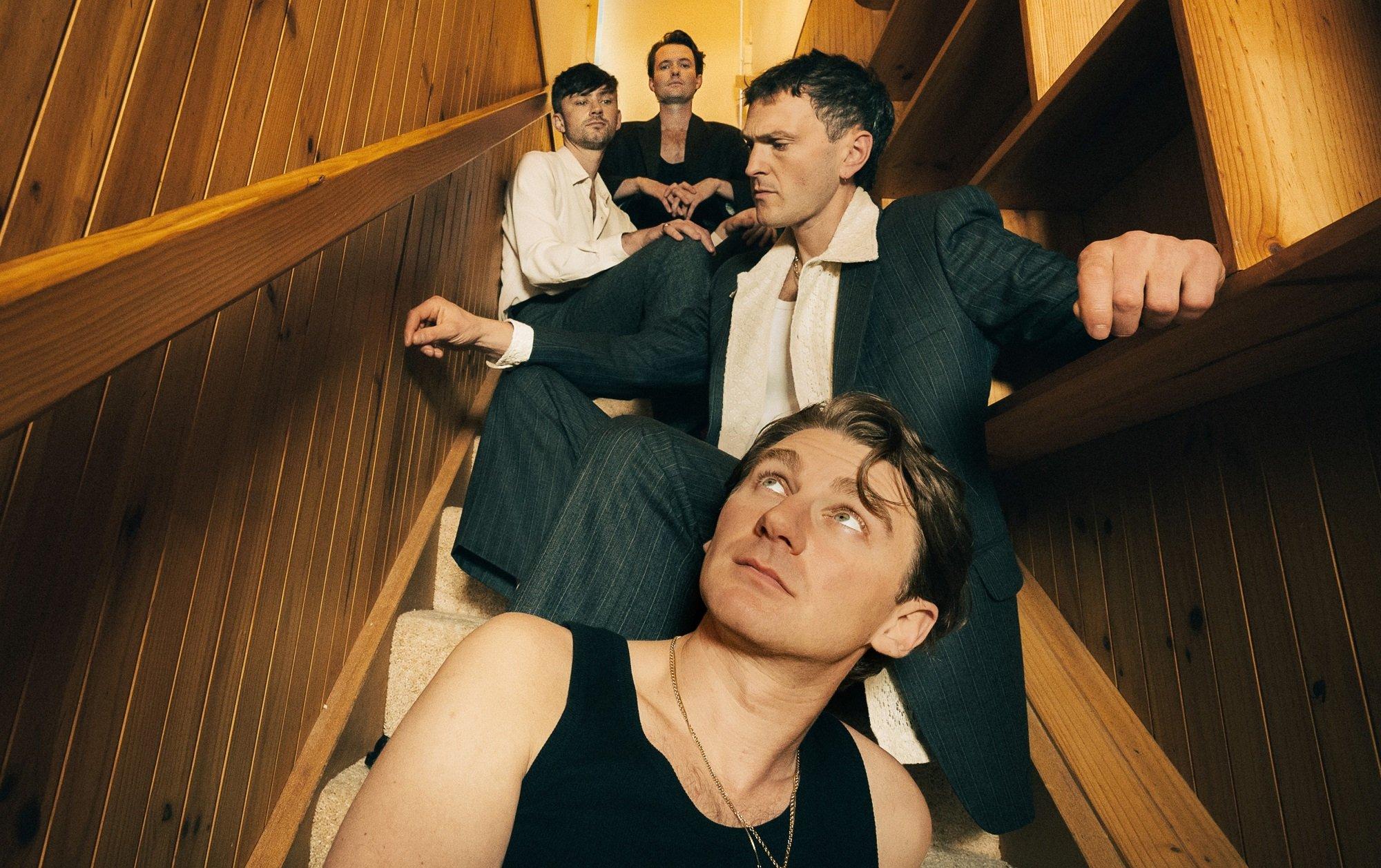
Photo: Drewby Perez
interview
Ladies And Gentlemen, Glass Animals Are Floating In Space
For Glass Animals, breaking through with their last album during the pandemic was an isolating experience. They brought those feelings to the fore with 'I Love You So F—ing Much,' where the Englishmen embrace a sort of majestic, celestial loneliness.
Remember the atmospheric river of 2024? Glass Animals' Dave Bayley thought he'd drown in it. He'd holed up in a cheap Airbnb to write his band's latest album, I Love You So F—ing Much — and soon realized why it was so cheap.
"When I got there, I realized why. It was one of those stilt houses, hanging off the edge of a cliff," Bayley tells GRAMMY.com. "There was s— flying down and trees coming out of the ground, flying down the mountain. I was like, I'm dead. This is it. This is the end."
Late at night, observing the bedlam of the natural world, Bayley didn't feel planted on terra firma at all; he felt as if he was floating in space. Which turned out to be the impetus for the English indie-psych-poppers' latest statement — space being a metaphor for disconnection and unmooring. (The album arrived July 19 via Republic; Bayley remains the sole producer.)
"I think I had a lot of imposter syndrome, and felt very disconnected from reality as well," Bayley says of the Covid era — which unfortunately dovetailed with the breakout success of their last album, Dreamland. But by some strange alchemy, Glass Animals spun that feeling into emotional warmth.
As you absorb songs like "Creatures in Heaven," "A Tear in Space (Airlock)" and "Lost in the Ocean," read on for an interview with Bailey about how this celestial, lonesome, yet oddly swaddling and comforting album came to be.
This interview has been edited for clarity.
How would you describe the four-year gap between Dreamland and I Love You So F—ing Much?
Like lifetimes, honestly. And at the same time, it sort of feels like yesterday as well.
It's very, very confusing — because we finished Dreamland, and then Covid hit. We were about to release it, and then we postponed, and postponed, and realized the pandemic is not going away. We promised people the album; we needed to release it to, like, survive. So, we released it thinking it would probably tank. And it did something absolutely amazing, unexpected.
Most people, when something like that happens, get to be out and experience it, and see it happening in the real world — playing live shows, and they feel part of it, and it's part of them. Whereas I was trapped in my bedroom in my underpants watching it all happen through social media and email updates.
You needed to make it to survive? Say more about that.
I mean, that was our livelihood. Somehow, this has become a profession — I have to pinch myself when I say that, it's the best thing ever.
But you can't just not release music. You have to keep writing and releasing music to maintain it as a profession. We were four years out from the record before that, at that point.
Odd question: if a music career was inaccessible to you, what would be your professional destiny, as it were?
I was trying to be a doctor before all of this happened. I was four years deep into medical school, actually. Then, a series of strange and terrible things happened in my life that made me like, I want to take a break from med school.
I was using music as a therapy, almost, to get over some of the things that had happened. I was making music to feel better, really, and connected somehow. Someone, somewhere, maybe, put it on SoundCloud.
**What was the thematic seed of I Love You So F—ing Much?**
I guess that sense of detachment was a big thing — because it not only went for the duration of the pandemic, but even after the pandemic, we were touring. And because there was no insurance for people touring against Covid, we still had to isolate and bubble within ourselves. It was going to extend us another year and a half, just being in this metal tube.
It was like, the biggest shows we ever had — they were amazing. We'd walk on stage, and for an hour and a half, be slammed in the face with emotion and energy. And then we'd walk offstage back to the bus, and we couldn't interact and be part of what was happening afterwards.
It just made us all feel even more surreal — it felt like a dream.
Talk about the sound you wanted to capture.
This one, I wanted to sound a specific way; I knew the equipment to get. I got about six synths and 20 pedals that fit the sound — a couple of guitars and a drum kit that fit the sound — and I just went for it. You could turn anywhere, and the sound would fit into the context of the record.
**If you think of Glass Animals' discography as stops on a journey via train, which stop is I Love You So F—ing Much?**
We've reached this retro-futuristic stuff, and I think it's definitely a progression from the last album.
I definitely set my own kind of '90s, '80s production — and now there's a bit of a vaporwave thing going on, but it was still pretty analog and nostalgic. It seems to be almost like the train went backwards.
Then, on the songwriting side, I was trying to really make sure the core of the sounds had [integrity]; they could basically be played with guitar and voice alone. I wanted the chords to tell the story of the song as well; we'd kind of done that in the past, but I'd never really focused on it like I did this time.
I wanted the chords to keep evolving through each section of the song — just twist the atmosphere of the song in each section.
Give me a line on I Love You So F—ing Much that you feel sums up what we're talking about.
"Show Pony" is the first song; everyone creates this idea of love, and what love should be, based on what they've seen and experienced growing up. Seeing their family, seeing their friends — you're walking down the street, and you see a couple arguing, and you form these [impressions of] love.
"Show Pony" is kind of the blueprint; it gives context for the rest of it. And then, the line that comes right after it: "What the hell is happening? What is this?" I like that as the real beginning of the record, after the table of contents — the first song.
Where do you think Glass Animals will go from here?
It's a good question, because I don't really think I'm there yet. I have a few ideas — but to be honest with you, I never end up going with any of the first ideas that I have.
Before this iteration of the album, I wrote a whole other space album that just felt really cold and hollow and empty — like a vacuum. It wasn't cool; it didn't have enough emotion, and it didn't feel soulful enough. I just binned it, and sacked off; it's in the trash.
It wasn't until I stumbled on this concept of juxtaposing these kinds of small, intimate moments with the size of space, that I put two and two together — and worked out how I could do a space album without it being f—ing s—.
Explore More Alternative & Indie Music
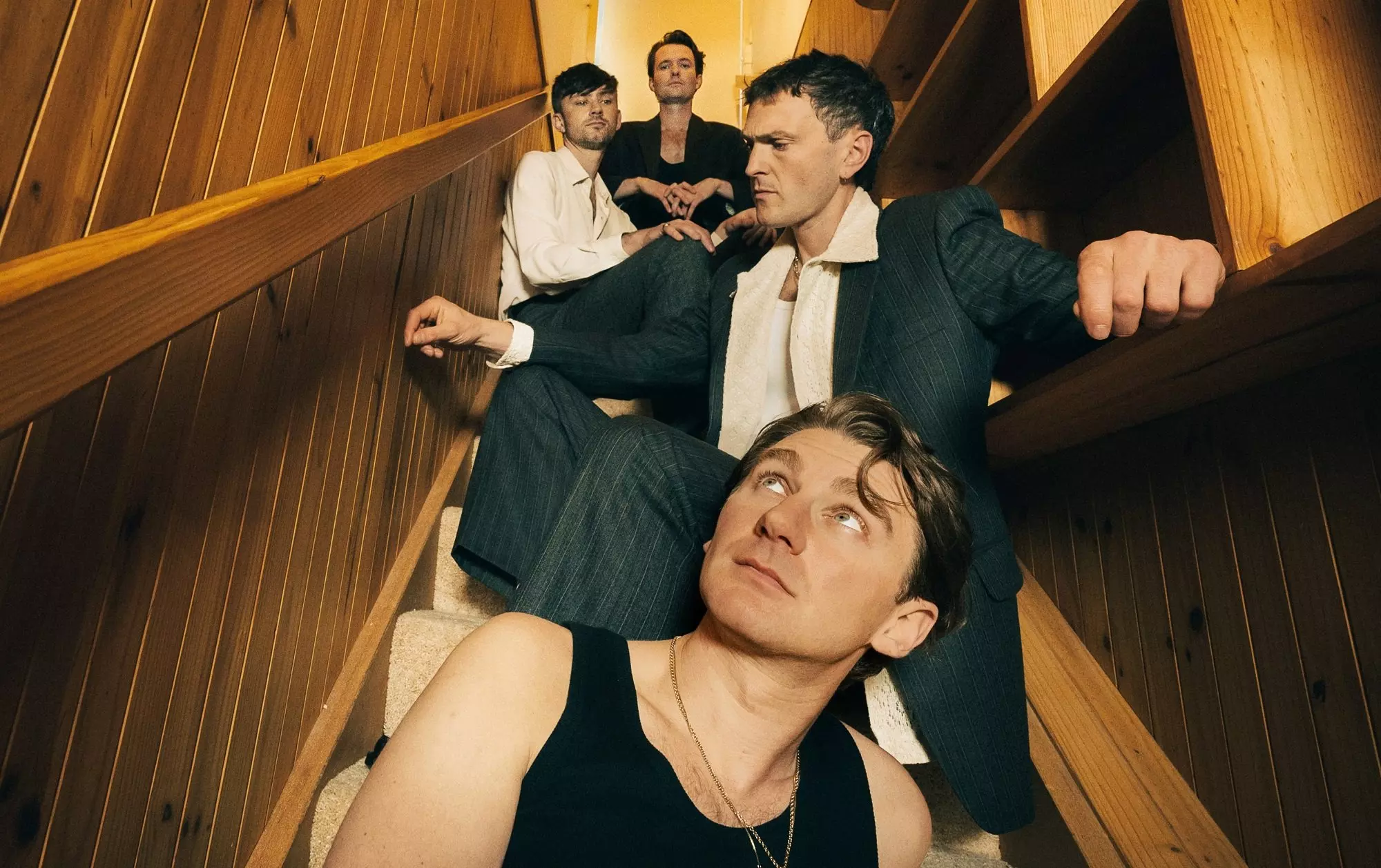
Ladies And Gentlemen, Glass Animals Are Floating In Space

Daniel Nunnelee's "Why Don’t You Just Come Over"
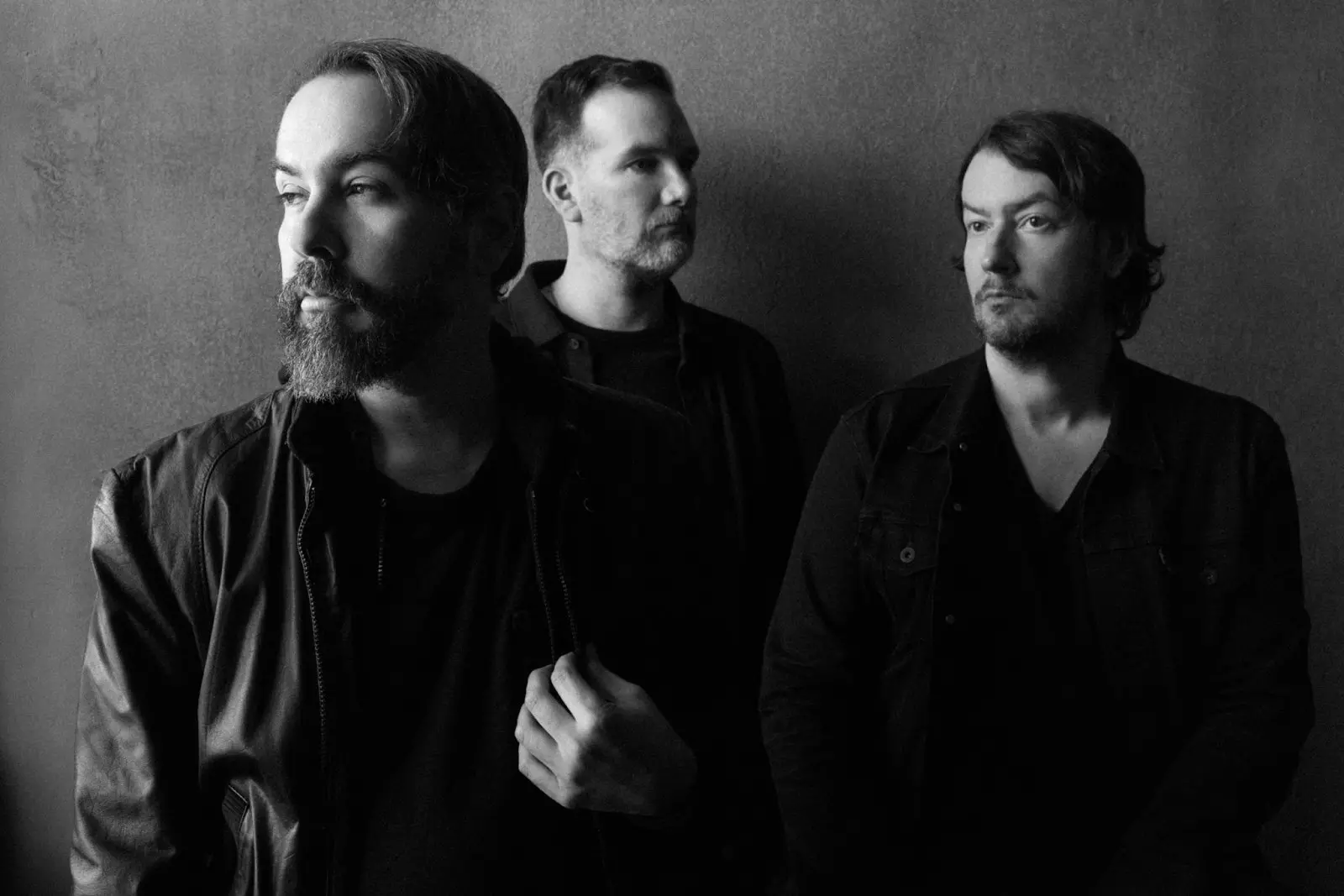
X's Mark The Spot: How Cigarettes After Sex Turn Difficult Memories Into Dreamy Nostalgia
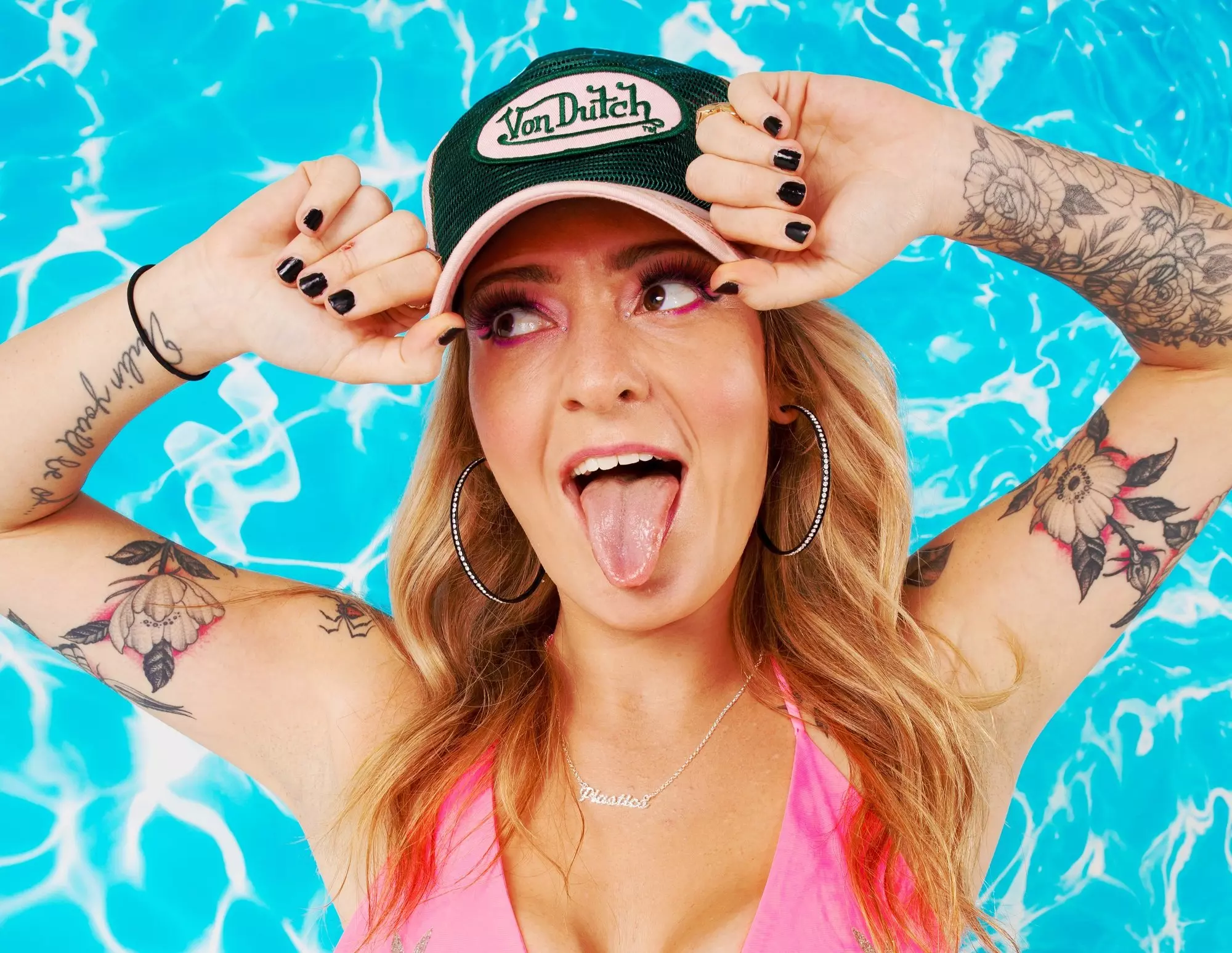
Meet Scene Queen, The "Chaotic Mess" Cleaning Up The Alternative Scene

Where St. Vincent Keeps Her GRAMMY Awards
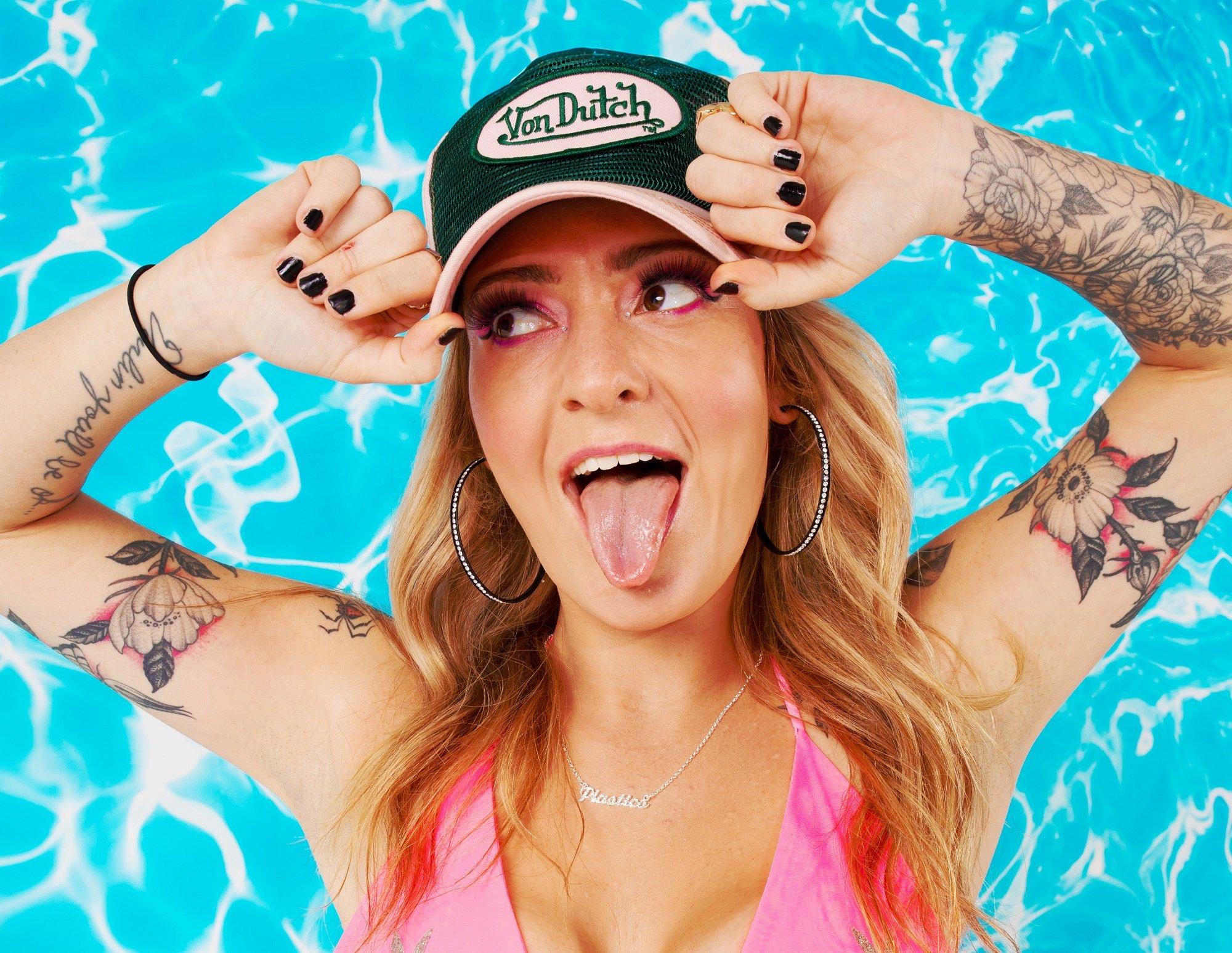
Photo: Danin Jacquay
interview
Meet Scene Queen, The "Chaotic Mess" Cleaning Up The Alternative Scene
"I'm cool taking sticks and stones thrown my way if it means that 10 years down the line there's gonna be another girl that tries to do what I do and gets zero flak for it," Scene Queen says of her take-no-prisoners album, 'Hot Singles In Your Area.'
"F*** the scene, I’m the queen!" Scene Queen announces early on her debut album, Hot Singles in Your Area. Delivered in a snarky sing-song, the exclamation serves as something of a mission statement for everything the singer has set out to accomplish with her winking metal-pop persona.
On Hot Singles (out June 28 via Hopeless Records), the artist calls out the bad behavior that’s run rampant in the alternative music scene for decades. From the insidious grooming of teen fans ("Headline spot goes to the abuser/ Half my idols are f—ing losers," she sings on blistering lead single "18+"), to the blatant discrimination experienced by female artists in the genre (opener "BDSM"), and date rape drugs and sexual assault ("Whips and Chains") — Scene Queen takes unflinching aim.
Born Hannah Collins, Scene Queen isn’t out to destroy the genre she grew up loving as a Warped Tour-obsessed teenager in suburban Ohio. Instead, she’s using her perspective as a queer female artist and knack for razor-sharp songwriting to make the scene safer, more accountable and, ultimately, more inclusive.
Featuring high-octane collaborations with the likes of The Ready Set ("POV"), WARGASM ("Girls Gone Wild") and 6arelyhuman ("Stuck"), Hot Singles in Your Area is also an unabashed pleasure ride that introduces listeners to Scene Queen’s unique brand of sexual freedom, self-love, queer pride and self-deprecating humor.
"My fans know that I'm playing into the joke of it a lot," Collins says from her home in L.A. "But a lot of people still don't understand it."
Ahead of her album release, Scene Queen opened up exclusively to GRAMMY.com about finding her voice in the metal space, the pop icons who inspired her persona (from Britney Spears to Paris Hilton, Dolly Parton, and Jessica Simpson), standing up to misogynists, homophobes and haters, and more.
How does it feel to be on the verge of finally releasing your debut album?
Really exciting! But also terrifying in a way. With [2022 EPs] Bimbocore Vol. 1 and Vol. 2, I feel like I told the story of, "Who is Scene Queen? What is this project?" Like, she's very loud and out there and opinionated, and in your face and whatever.
But this record touches on everything in my life that happened for me to become this version of myself — why I needed to become Scene Queen. I made a whole record about being independent and reclaiming my power and sticking up for myself and sticking up for people in the scene…In a weird way, I'm making jokes this entire album, but it’s a vulnerable album in the sense that I'm revealing a lot via the lens of humor.
How did the Scene Queen persona come about?
I grew up in the alternative space. Like, I went to a million Warped Tours and all of that stuff. I was at shows in Cleveland, like, every weekend during high school. I've been listening to bands like Hawthorne Heights and stuff since I was 8 or 9 years old. So when I was 18, I moved out to L.A. from Ohio, and that was around the time that all of these bands started dropping members left and right because they were finally getting called out for, like, predatory behavior or what have you — just being, generally, not great people.
Coming into adulthood, you start looking at things through a different lens, like, Oh, that was a weird interaction or Oh, I feel weird that they let me do that at 16 years old. It really felt like, as a woman, the scene wasn't a safe space for me anymore. Then suddenly, during COVID, the only thing I wanted to listen to was, like, super alternative music.
TikTok introduced me to a lot of bands like The Home Team, that were combining pop-punk with, like, R&B — I always loved that experimental stuff. And I was listening to a ton of BABYMETAL and WARGASM, experimental metal-pop stuff. But I told myself the only way I would come back into the alternative space was if I did it on the terms of what I wished I’d had in the scene growing up.
So now I operate my entire persona as this elevated version of myself because I feel like people need that. Scene Queen is like a superpower for me in a way — she helps in my day-to-day life as Hannah, too.
What makes the Y2K era such a key element of the Scene Queen aesthetic?
Growing up in that time, super hyper-feminine women were often vilified, especially in rock music. If you were super girly at a show, people would assume that you were there to sleep with the band. Like, you weren't as worthy of being there as a man. When I was in high school, I actively chose to dress in mostly all black because I just didn't think I would be taken seriously.
So I wanted to pull that whole era into it and just be like, I'm actively going against everything I grew up with and what the scene told me was acceptable. And now I'm gonna be the antithesis of what any of the people that were misogynistic — or also just underestimated me — would want from me. And now I make the choice every day to irritate those people. [Grins.]
Growing up, were there female artists you looked up to in the scene?
I just came off of a tour with PVRIS, and [Lynn Gunn] was one of the first queer people I ever knew of within the scene. Which is so crazy to think of back then, that I only had one example of that. She was just, like, openly queer and didn't feel the need to... I don't know, she didn't come out to anyone, she just always existed that way and people didn't criticize her for it. It was the first time that I saw that and was like, Oh, maybe I would be able to do that someday."
But behind the scenes, she was on the receiving end of so much misogyny, because men didn't think they could get something out of her, 'cause they knew that she was a lesbian and whatever. She was enduring 10 years of misogyny and homophobia so that someone like me could come around 10 years later and be this voice in the scene.
So it's cool that I'm getting recognition, but the only reason that I'm able to do this now is because so many women just took extreme hate and terrible things behind the scenes before me. And I still get massive flak for it now. The end goal of all of this, and I think if you ask any woman, they'll tell you the same thing: I'm cool taking sticks and stones thrown my way if it means that 10 years down the line there's gonna be another girl that tries to do what I do and gets zero flak for it. Someday I hope we get there.
What other female artists helped inspire your Scene Queen persona?
So there's two different versions of this answer. On the pop side, I'm so obsessed with 2000s pop princesses and also just pop icons in the sense of, like, that bimbo aesthetic. I allude a lot to Britney Spears in my music. Also Paris Hilton. Dolly Parton. Jessica Simpson. Women that, like, knew how they were perceived by the media and played into it, but were so the other way.
Like if you've ever seen the Paris Hilton documentary [2020’s This Is Paris], she talks about how she put on this voice and everything, because people were just gonna assume that she was dumb anyway. So she completely capitalized on that and was like, "That's fine, I'll take your money and make my career successful. If you're already gonna assume negatively about me, then that's my superpower." Those people really inspired me, and that's very much the aesthetic drive behind my project.
In the alternative space, there are bands that I grew up with that I was also super into like We Are the In Crowd, VersaEmerge, In This Moment. So there's a lot of women that have helped create the Scene Queen project without knowing.
How much of the album is autobiographical?
It tells the whole tale of coming [to L.A.] and getting my foot in the door, the music industry experience of it all. No one talks about having this second coming of age in your twenties and thirties where you're actually figuring out who you are. I was one of those people that didn't come out, or didn't even fully process that I was queer, until I was in my twenties.
I was just so scared about it 'cause I grew up in a small conservative town. And then I came here and was just like, I need to work in music so bad that I don't even want to think about dating! [Eventually,] I realized I spent all this time trying to be independent and confident. And now I'm going into the dating world.
Some days you feel like an absolute sex god and the next morning you wake up, and you're on a first date and you have word vomit, and you don't know how to interact with people. So you get a song like "Oral Fixation" where it's just about having absolutely no game when you're dating for the first time. The record really tells the whole story of becoming all of this chaotic mess that is Scene Queen, which is both making fun of itself and hypersexual, and this, and this, and this.
Read more: 15 LGBTQIA+ Artists Performing At 2024 Summer Festivals
You play around so much on the album by mixing really serious topics with a sense of humor. How do you balance that in your songwriting?
I always come into a session with the baseline idea of subject matter and title. This album was a lot easier because it's a concept album in a sense, and I thought of all these [explicit] categories that I could've used… Take "Oral Fixation," for example. That was the first song I wrote for Hot Singles other than the title track. I realized I could write it about word vomit and, like, choking on something, instead. Or, like, the last song of the record is called "Climax" because it's the high point of the record, but it’s actually a really wholesome song.
And then "BDSM" means "Beat Down Slut Metal," but also "Big Dumb Stupid Men." I decided to make that the opening track because I was getting all of these comments that were like, "Scene Queen's a man hater!" for criticizing anything men do in any capacity. This was after my song "Pink Push-Up Bra," which is so specifically about sexual assault that I was like, "OK, of I can't even criticize people that sexually assault women as being bad, then sure, I’ll put it as the first track."
What was your motivation behind the hypersexualization in some of the songs?
I think people don't understand that you can be fully confident with yourself and your sexuality and think you're a good person, and worthy of love and worthy of sexual pleasure, while also not taking yourself too seriously. You can still make fun of yourself but also know your self-worth.
As much as I make these self-deprecating jokes, at the end of the day I refuse to be treated poorly. And I think that comes across in all the songs about sexual pleasure and sexuality. You learn at a young age — especially if you've been closeted for a long time — [the feeling of] I robbed myself of so much joy for so long. I deserve to get off for something. [Laughs.] I deserve a little bit of joy in my life. So I tried to write that.
"M.I.L.F" is obviously a raunchy, very sexual song. But that song came from spending a summer in Nashville, and I was always just like, "Tennessee: conservative." But there's this huge population of people who have stayed or moved to Tennessee; who grew up listening to country music but then shied away from it because their beliefs no longer resonated with the [genre's] subject matter. So I wanted to have a song for those people who are like, "Yeah, I still wanna go chug a beer and jump off a boat on a lake, but also, I am pro-gay marriage and whatever."
I wrote a song that I knew the people who were country elitists, that would never like me anyway, would be horrified by. And the way I did that was via very explicit lyrics and the most sexual content ever. But it ends up being one of the rowdiest songs in my live set, because so many people truly do want to just put a hat on and do a line dance. They just don't want to be judged when they do it, you know?
So it ended up being this weird statement that I didn't necessarily fully think it would be, but it's one of my favorite parts of my set now. Having that little hoedown for the hoes every week is really fun for me.
I actually just attended this charity event at Stonewall for this organization called Inclusion Tennessee, where I learned that Nashville is the largest city in the country without its own LGBTQ center. Queer people in those types of communities are still fighting constantly for resources and inclusion and acceptance.
It is so wild, too, 'cause there's this discussion around Chappell Roan making that statement at Gov Ball about not performing at the White House, and then going to play in Charlotte, where North Carolina obviously has conservative views as a whole. There are so many pockets of queer communities that are actively seeking out someone that will advocate for them and give them a voice, and I think it is so cool. It's such a privilege to get to be one of those people now.
This summer, you’ll be co-headlining idobi Radio’s Summer School Tour. What are you looking forward to about that?
That tour, in and of itself, is so cool and exciting for me. Because one, it has the rotating co-headliners, which emphasizes the importance of music discovery. You have to show up at the beginning of the day to see who you want to see. Anyone that grew up with Warped Tour obviously is going to be stoked to have something like that.
But also, there are so many queer people and women and people of color on that tour. The lineup is so diverse and I feel like if that tour had existed in the 2010s and 2000s and ‘90s even, that never would've happened. So the fact that the initial launch looks that way makes me so hopeful for the future of it.
OK, last two questions: What’s the most memorable Warped Tour set you ever saw? And what are your top 3 "Bimbo" pop songs?
Most memorable Warped Tour set: I'd probably say the first time I ever crowd-surfed. I think I was, like, 13, it was to the band Sleeping with Sirens, and that was just the pinnacle of, like, "I love alternative music!"
Then as far as the "Bimbo" pop songs, hmm...I have to say "I’m a Slave 4 U" just because that Britney Spears music video is so iconic — the dancing, all of it. We gotta do a Paris Hilton song. It was hard to be in a mall food court in the late 2000s and not be humming "Stars Are Blind." Yeah, soundtrack to my youth, for sure. And then "9 to 5" by Dolly Parton even though that’s country, not pop. Like, how do you not want to trot out there to [sings], "Hopped out of bed and I stumbled to the kitchen..."? It just gets the bimbo vibes going.
Listen To GRAMMY.com's 2024 Pride Month Playlist Of Rising LGBTQIA+ Artists
.jpg)
Photo: Courtesy of Siiickbrain
video
ReImagined: Watch Siiickbrain Deliver A Grungy Cover Of Nirvana’s GRAMMY-Nominated Single, “All Apologies”
Alternative newcomer Siiickbrain offers her take on Nirvana’s “All Apologies,” a track about shamelessly looking beyond societal norms.
Over two decades ago, Kurt Cobain famously declared his unapologetic stance — from supporting gay rights to his skepticism about reality — in Nirvana's 1993 GRAMMY-nominated single "All Apologies."
Cobain probed in the opening verse, "What else should I be?/ All apologies," Cobain questioned in the opening verse. "What else could I say?/ Everyone is gay/ What else could I write/ I don't have the right."
In this episode of ReImagined, alternative newcomer Siiickbrain delivers her rendition of the In Utero track, channeling the '90s aesthetic with a vintage camera. Like Cobain, Siiickbrain uses her songwriting to confront and address her mental health.
"[My struggles with mental health] made me want to speak on it within my music, and it kind of gave me a foundation for what I'm doing," Siiickbrain said in an interview with Kerrang! "It gave me a purpose to write about certain things and bring awareness to how common these feelings are."
On March 29, Siiickbrain released "when i fall," featuring Shiloh Dynasty and No Love For The Middle Child, which she describes to Alternative Press as based on "true events that were written and performed as [No Love For The Middle Child and I] were recovering from the challenges of a relationship while simultaneously creating music together."
Press play on the video above to hear Siiickbrain's cover of Nirvana's "All Apologies," and remember to check back to GRAMMY.com for more new episodes of ReImagined.
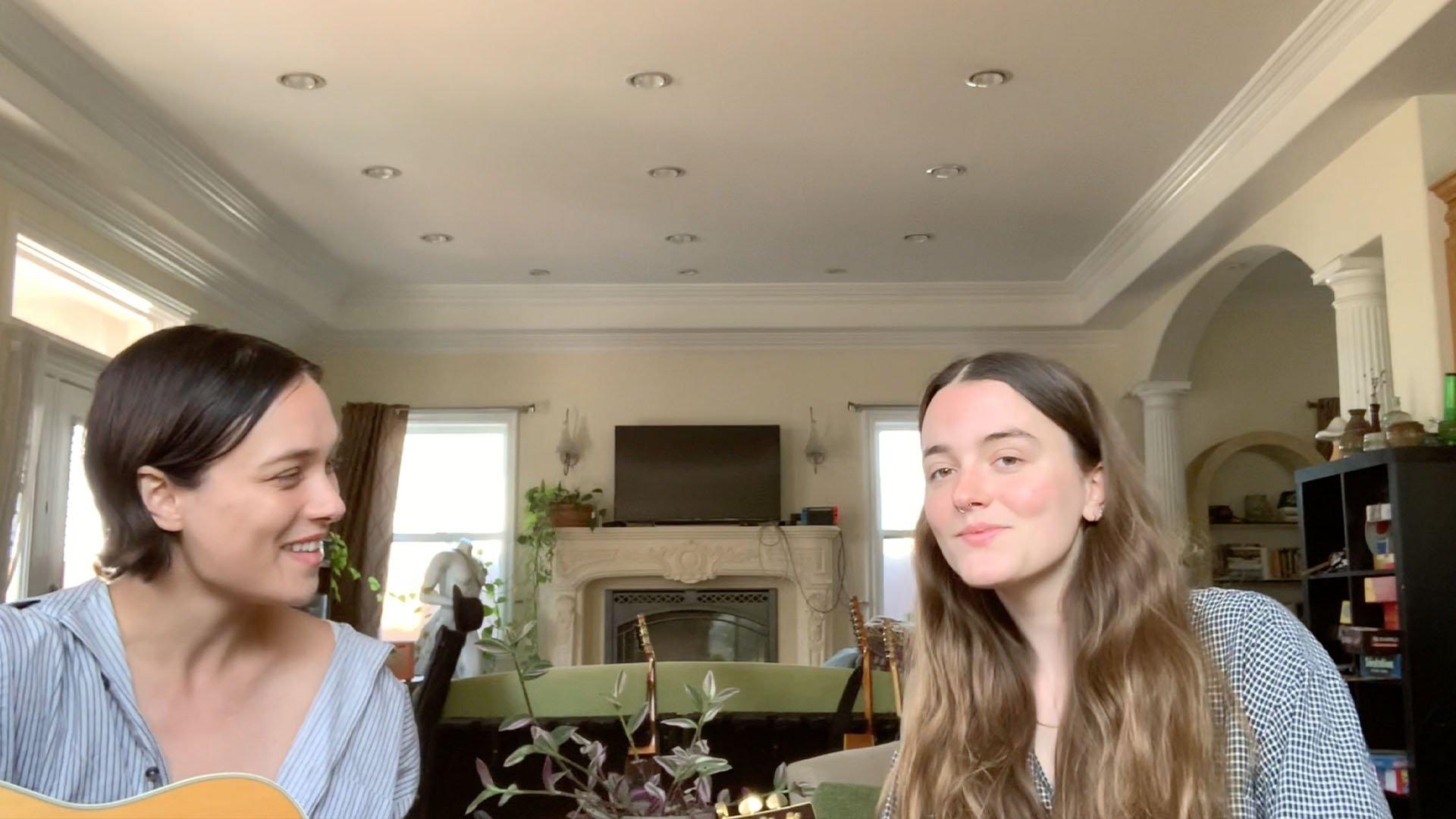
Photo: Courtesy of Abby Sage
video
Press Play: Watch Abby Sage Feed Her “Hunger” In This Acoustic Performance Of Her Single
Rising indie star Abby Sage performs “Hunger,” an unapologetic track about sexual liberation from her debut album, ‘The Rot.’
With "Hunger," rising indie star Abby Sage takes autonomy of her body. It’s a story of shameless self-discovery as she submits to her natural desires while simultaneously breaking down the toxic ideas she learned about sex in her adolescence.
"Feed my hunger/ No shame, I'm just a beginner," she croons in the chorus. "It's my own wonder/ Don't press, I'm just a beginner."
In this episode of Press Play, watch Sage deliver an acoustic performance of the single from her debut album, The Rot, which she released on March 1. According to a statement, the project is largely about "the decomposition and reconstruction of everything I was taught," including sex, anxiety, and more.
Sage said "Hunger" is "the most important song to me on the album" adding, "I wish I heard a song like this when I was first exploring my sexuality and my sexual journey, and for that reason, I hope it reaches people."
This May, Sage will embark on an international tour that begins in Los Angeles and concludes in London, with support from gglum, spiderblush, and Jayla Kai.
Watch the video above to hear Abby Sage's empowering performance of "Hunger," and remember to check back to GRAMMY.com for more new episodes of Press Play.
Watch Genia Narrate The Pain Of Heartbreak In This Raw Performance Of "Dear Life" | Press Play
